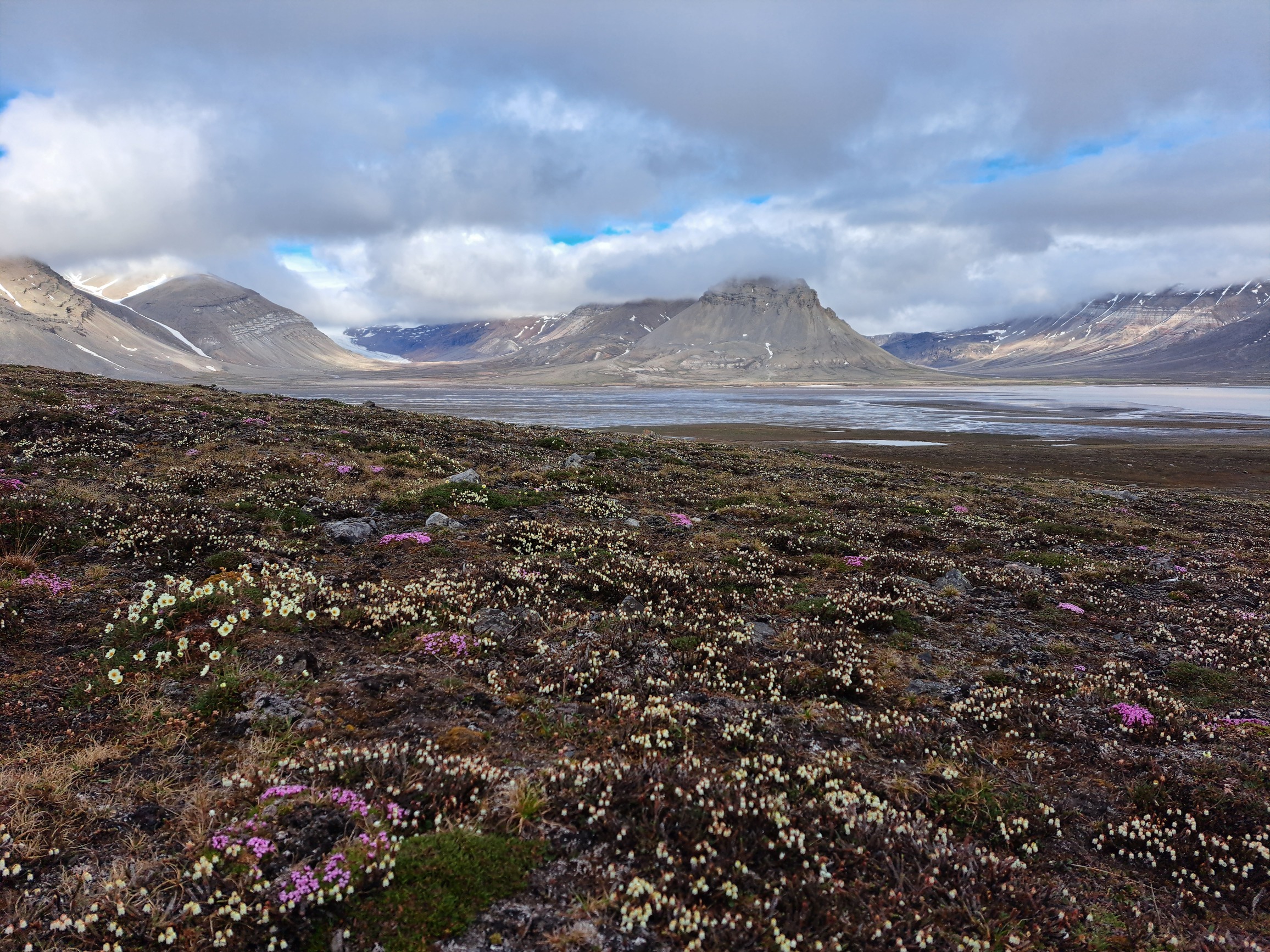The Polar Ecology course 2024 - report

This year, the practical part of the Polar Ecology course once again took place at our field station, under the guidance of the Center for Polar Ecology (CPE). A group of 10 students and 4 mentors spent 19 days at the Czech Arctic Research Station (CARS) on Svalbard. The course focused on studying glacier retreat, with a detailed look at the development of vegetation, invertebrates, and microorganisms in these changing environments.
The adventure began with two days in Svalbard’s capital, Longyearbyen, where students explored the typical local vegetation during an excursion to Endalen. They then traveled by boat to the Nostoc field station on the shores of Petuniabukta Bay. Here, students experienced the life of polar field scientists, collecting samples and contributing to the daily running of the station, from cooking for the entire team to keeping the place tidy.
A important part of the course was also learning how to handle and shoot a signal pistol and rifle—essential skills for defending against potential polar bear encounters. All mentors have to carry a firearm while out in the field, just in case.
Throughout the expedition, students visited three different glaciers (Ferdinandbreen, Hørbyebreen a Ebbabreen), where they compared areas of varying ages and collected samples for later analysis at the station, and eventually back in the Czech Republic in faculty and Biology Center laboratories. The botany group focused on documenting plant species within designated vegetation plots, while the zoology team collected and examined soil fauna under the microscope. Meanwhile, the microbiology team collected soil samples to measure CO2 release and the ability of microorganisms to break down various nutrient sources.
The course also included day trips to give students a deeper understanding of the Arctic environment. For example, on the Nordenskiöldbreen glacier, they explored unique cryoconites and the treacherous glacier mills known as “moulins.” At Blue Lake near the town of Pyramiden, students learned how to collect samples from a boat using a plankton net and got an introduction to how meteorological stations work.
"For us as students, this was an unforgettable experience and a wealth of knowledge that will greatly benefit our academic careers."




















